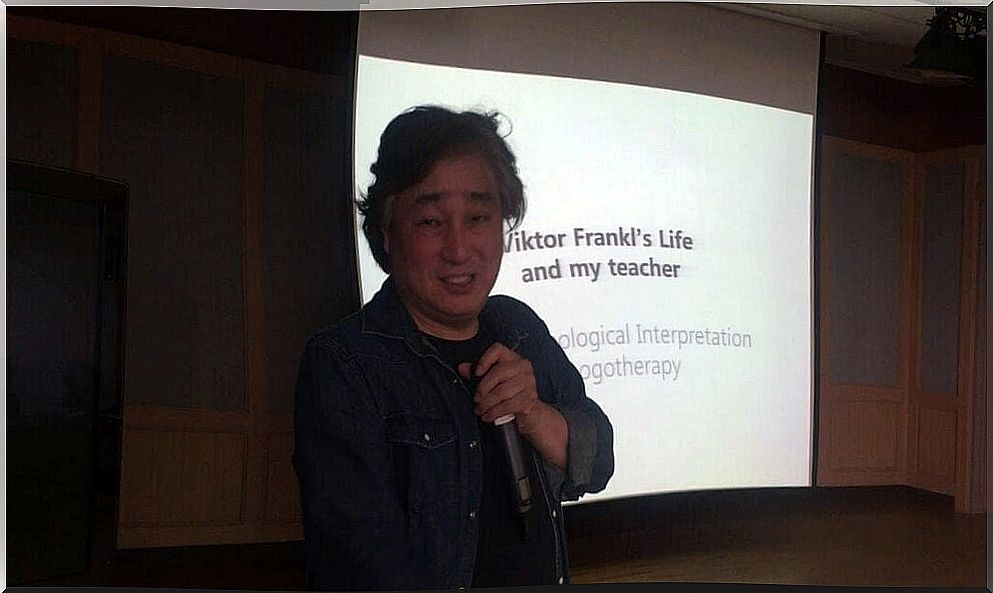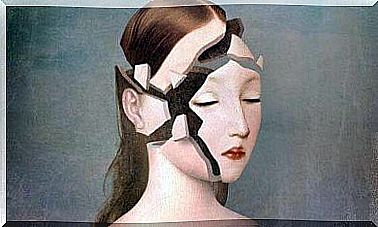Positive Existential Psychology, According To Paul TP Wong

For many, positive psychology has a “dark side”. An almost exclusive focus on positive-value emotions such as joy, excitement, and hope can leave the less-loving side of life unattended. In response to this, a new and valuable perspective emerged: existential positive psychology.
Its champion is Paul TP Wong, a Canadian psychologist who leads the “second wave of positive psychology” . This current, more than a reformulation, seeks to raise awareness that unhappiness also exists and that going through it during a certain period is something normal. After all, as Albert Camus rightly pointed out: “No one achieves the joy of living without first having contact with suffering” .
What Dr. Wong proposes to us with his interesting theory is a new way of understanding the model that Martin Seligman established in the 1990s, by allowing us to understand the biological bases of psychological well-being and happiness.
It’s time to put aside the most hedonistic and convenient emotions to navigate between difficulties until we reach a direction, a meaning, a purpose. Let’s go deeper.

What is Paul TP Wong’s Positive Existential Psychology?
There is something that Paul TP Wong frequently comments in his lectures: the world today is chaotic. We live in a present full of difficulties and we need another therapeutic perspective. Positive existential psychology seeks to help people achieve stability and well-being, enabling them to manage the daily difficulties and constant challenges we face.
Thus, a point of criticism of positive psychology and names like Seligman and Mihaly Csikszentmihalyi is the fact that they have focused exclusively on the healthiest areas of the human being. Factors such as creativity, enthusiasm, hope or even emotional intelligence guide us so that we can bring out the best in ourselves. Thus, those who work and develop these capabilities can reach the peak, the self-actualization described by Abraham Maslow.
Well, but what happens when someone feels lost? What happens if I am dealing with depression after the loss of a family member or my partner abandoning? Under these circumstances, I cannot light the lamp of enthusiasm. It is also not possible to awaken my creativity, as my mind is blocked, stagnant in despair.
These are the contexts in which Paul TP Wong’s positive existential psychology makes sense.
The courage and responsibility to face difficulties
Existential positive psychology does not seek to diminish the authority of traditional positive psychology. She goes further, understanding that sometimes a simplistic interpretation of that model is made, with publications that often fall into the magical thinking that, if we just wish, our expectations will be fulfilled. This is what we see, for example, in The Secret , by Rhonda Byrne.
Dr. Wong affirms the following: each one has the power to awaken their own courage, attitude and courage to face adversity. If we are able to develop a psychological mechanism based on resilience, on the ability to find meaning in every circumstance, it will be possible to aim for happiness.
Therefore, existential positive psychology does not diminish the value of happiness or hope. Positive emotions are actually the engine of the human being. However, it is necessary to give space to emotions of negative value and understand them.
Existentialism as a cornerstone of Wong’s positive existential psychology
There is a very valuable aspect to this perspective established in 2011. It undoubtedly integrated the existential perspective into positive psychology itself. In this way, it adds more meaning, purpose and utility. Thus, both philosophers and existential psychologists remind us that life is full of paradoxes, setbacks and problems that we must deal with.
Facing up to these dimensions is what allows us to develop remarkable psychological resources. This is how we increase courage, this is how we commit ourselves to the effort, the overcoming and the firm commitment established between ourselves and life. Existential positive psychology assumes that authentic happiness only makes sense when the individual knows what suffering is and knows how to face it.
Thus, one of its pillars is mediation and the search for strategies that allow people to learn to deal with loss, fear of death, disappointment, anxiety, fear, despair.

Viktor Frankl and the search for meaning
According to Paul TP Wong, positive psychology needs to return to its existential-humanist roots. Only then will it be possible to recover its meaning of transcendence. And more: we cannot help someone rebuild their reality to achieve well-being and happiness if we are not guided by what was taught by Viktor Frankl: the search for meaning.
When someone navigates the oceans of uncertainty and adversity, he needs a light. You need a focus, a refuge, something that gives you meaning and encourages you to fight and not surrender. Therefore, Dr. Wong encourages us to ask the following questions:
- Who am I? What defines me?
- How could I be happier? What is a good life for me?
- What is my vocation? What should I dedicate my life to to feel good?
- Am I making the right decisions?
- Where do I belong? Why do I feel so lonely in this world? Where can I find acceptance? Where is my house?
- What truly makes me feel?
To conclude, existential positive psychology brings us a valuable current. One that, in fact, recovers past concepts, pillars that were essential for the development of psychology as it is. In fact, now more than ever, in this complicated time full of uncertainties and challenges, it is important to work on these principles.
We need to remember our vital purposes and make room for the more complicated emotions, those that can bother or hurt. Understanding them makes us wiser. Knowing how to handle them makes us stronger and more capable people.









